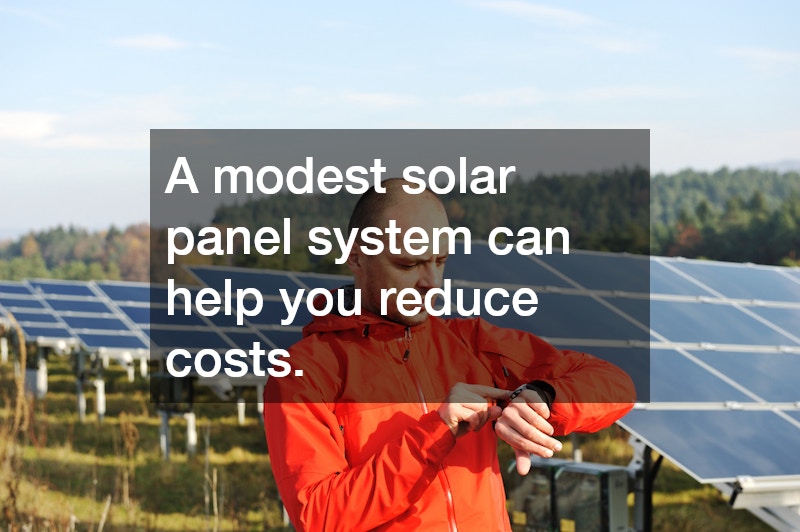
Although energy costs have risen in the past decade, by practicing conservation and installing a solar panel system, you can save money on your electric bills. Contact local solar electric companies to ask, “What is the most efficient solar panel system you offer?” Compare their responses to determine the system with the maximum efficiency that you find affordable.

How to Improve Solar Panel Efficiency
Once your professional installer finishes putting in your high-efficiency solar panel system with anti-reflection coatings, you assume the maintenance. Your upkeep of the yard and the solar panel system determines how much energy from the sun you’ll convert into electricity. Maximize solar production, even when using smaller solar panels, using these tips from Energy Theory:
1. Eliminate shade above the panels, so your panels receive direct sunlight.
2. Orient the panels to face south, so they obtain maximum sunlight exposure. Use latitude-based angles or slopes for the panels.
3. Clean your photovoltaic panels (PV panels) about once per week.
4. Use a software as a service (SaaS) monitoring app to monitor power output. Seasonally, have the installer conduct a maintenance visit.
5. Enhance your system with backup batteries.
6. Optimize your power consumption. Don’t run more than one energy-intensive device simultaneously on solar power. Turn off devices when not in use.
7. Use mirrors to focus added sunlight onto the panels. Your installer can help you with this task that requires a trained professional.

A modest solar panel system can help you reduce costs. Next, let’s consider how much energy costs could increase in the coming years.

Energy prices are on the rise, and it’s no secret. The U.S. Energy Information Administration warns that the residential retail price of electricity in 2013 is expected to grow by 2.2 percent to an average of 12.1 cents per kilowatthour, and that prices will grow by another 1.5 percent in 2014. According to American Electric Power, some of the factors leading to this price increase include higher generating fuel costs (like coal and gasoline), and environmental concerns.
According to the U.S. Government’s Energy Star Program, the average family spends more than 1,000 dollars annually on heating and cooling costs, which is nearly half of the total energy bill. Much of this expenditure comes from poor energy conservation, which means that the average home owner can quickly trim this expense down with some simple heating and cooling tips.
One way to make sure you’re getting the most out of your energy consumption is to install energy efficient home heating systems. Many times, old furnaces waste too much power to heat homes. Investing in an efficient home cooling and heating system may be a bit pricy, but in the long run it will pay for itself in the savings on energy bills.
Another great tip for efficient home cooling and heating is to install a thermostat timer. According to the Learning Channel, this will save money and energy by automatically raising and lowering the home’s temperature during peak and off hours. Energy Star says that this can save about 180 dollars every year in energy costs.
The Energy Star program also advises that, in order to maintain efficient home cooling and heating, home owners should change their air filter regularly, about every three months, and possibly more during winter and summer. A dirty air filter will reduce air flow, which makes the system work harder and waste more energy to keep your home cool or warm. Plus, a clean air filter prevents dirt and dust accumulation, which will prevent expensive maintenance, repair, and an early system failure.
Efficient home cooling and heating will be paramount in the coming seasons as energy prices rise. Installing efficient home cooling and heating systems, and a thermostat timer, as well as changing air filters are all ways to trim down on energy consumption. If you have any tips about efficient home cooling or heating, feel free to share in the comments!